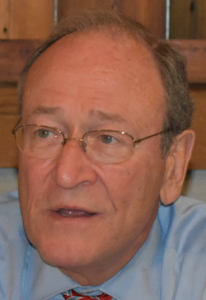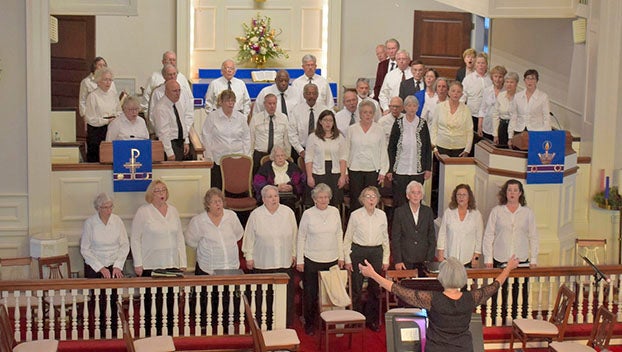Economic growth in Heart of Virginia
Published 5:56 am Wednesday, September 5, 2018
Brian Ball, Virginia Secretary of Commerce and Trade, met with town and county leaders from the Heart of Virginia on Thursday at Charley’s Waterfront Cafe to answer questions and facilitate discussion about fostering economic growth in the region.
Ball was appointed Secretary of Commerce and Trade in April and previously served as Special Advisor for Economic Development and Deputy Secretary of Commerce. During the meeting, he praised Prince Edward Director of Economic Development Kate Pickett Eggleston for organizing the event. Ball said his aim for the meeting was to learn about the issues facing the region and show that concerns and ideas would be shared at the state level, particularly by Gov. Ralph Northam.
“He was a product of rural Virginia,” Ball said about Northam, who grew up in the eastern shore outside Accomack County. “It’s vitally important to him that we have economic growth in all areas of the state.”
Representatives from the Town of Farmville, Prince Edward County, Cumberland County, Buckingham County, Longwood University, Southside Virginia Community College and Charlotte County took part in the meeting.
Several representatives from the Governor’s Office were present, in addition to Jeff Reed with Virginia Growth Alliance, Melody Foster with the Commonwealth Regional Council and Stephen Moret with Virginia Economic Development Partnership.
Cumberland County Administrator and Attorney Vivian Seay Giles spoke about the need for broadband access in the region and said the county received a request from a broadband company for funding of $200,000 to support bringing broadband to the region. She said the amount would be a lot for the county, but also said the county has struggled with receiving broadband access. Giles asked whether there could be state or federal subsidies available to bring broadband to the area, and whether the best solution would come from the federal level or from independent broadband organizations.
“What’s the likelihood that … there would be some subsidy in this way, because I don’t think the localities can do it,” Giles said.
Ball said broadband is a serious concern he has heard in the region, and in portions of northern Virginia.
“It is intrinsically unfair for a kid in Fairfax to be able to go anywhere and be hooked to the internet, and for someone in some other part of Virginia to get on their bike or wait for someone to take them to a public place like a library. You just put that child way behind that other child and that just ain’t the way to do business,” Ball said.
He said there is no allocation on the federal level for rural broadband installation, and said it would require a change in Washington. Ball said a plan to address broadband access is expected to go to the Virginia General Assembly.
He said Deputy Secretary of Commerce and Trade Cass Rasnick has worked with the Virginia Tobacco Region Revitalization Commission on issues relating to rural Virginia.
Rasnick agreed with Giles and Ball, and said “we can’t have a conversation about economic development without talking about broadband.”
She said the United States Department of Agriculture Rural Development is establishing a pilot broadband access program for rural areas with populations of less than 20,000.
Buckingham County Board of Supervisors District Three Supervisor Don Matthews suggested having regional electric companies Southside Electric Cooperative (SEEC), Dominion Energy and Central Virginia Electric Cooperative (CVEC) come together. He said CVEC is meeting with Buckingham to create more widespread Wi-Fi access.
“We’ve already taken that next step,” Matthews said. “But we’d like to see the state give us a little bit of money or whatever you can do to help us get it out of the top and make it a reality.”
Ball encouraged regions to apply for assistance from the state, and spoke about collaborations between counties.
“What we see statewide is (counties) that go it alone, it’s much, much harder sledding than people who gather together and work regionally have a greater success rate because they can pull resources,” Ball said, saying the regional approach attracts state assistance in addition to businesses.
Prince Edward County Administrator Wade Bartlett spoke about the reduction of enterprise zone grants from the state and its impact in Prince Edward County, which is an enterprise zone. He said the county’s enterprise zone is set to expire in 2019 and was not renewed. The zones are designated by the Virginia Department of Housing and Community Development (DHCD) and provide incentives alongside local government for business growth and job creation.
“For a small, rural community, that’s been a big help,” Bartlett said about the zone grant.
Ball asked if Prince Edward was an Opportunity Zone, a zone designated by Virginia DHCD. Bartlett said it was. Ball said that and Prince Edward’s involvement in the UAS Integration Pilot Program for drone testing could help the county receive assistance.
Ball spoke about creating opportunities for entrepreneurs in the region, and trade and commerce representative Robby Demeria said he spoke with representatives of Longwood University to potentially install a community space for entrepreneurs in the former Barnes & Noble bookstore location at Midtown Square.
He said the state is focusing on supporting students as an aspect of economic growth.
“Farmville is a great example of a locality that has tremendous education institutions, a wonderful student base that has some work ideas we need to get behind,” Demeria said.
For substantial and long-lasting economic growth in the region, Letterpress Communications Founder Ilsa Loeser spoke about having local leaders prioritize existing businesses for expansion in place of bringing in new business, which sometimes do not generate jobs for people in the community.
“A hundred jobs that way is much more stable and impactful for us,” Loeser said.






